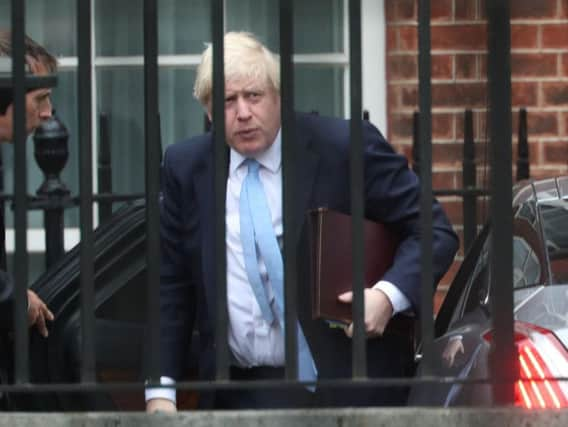What will happen in a general election?


The last three general elections and both the independence and EU referendums have caused surprises if not major upsets.
So at a time when uncertainty reigns supreme on almost every front, who can tell what will happen when another election is called?
Advertisement
Hide AdAdvertisement
Hide AdThe Tories were expected to win big in 2010 but David Cameron ended up in coalition with the Lib Dems; another hung parliament was forecast in 2015, but the Tories won a small majority; and Theresa May looked set to build on that in 2017 but instead lost the Tory majority altogether.
Meanwhile, the Yes vote on independence in 2014 was far bigger than expected at the start of the campaign even though No won, and of course the 2016 vote for Brexit took everyone by surprise.
Experts say the uncertainty over leaving the EU and the timing of this next election make it the hardest in a generation to predict.
The opposition parties have shown a remarkable ability to come together to frustrate Boris Johnson in parliament but it will be different in an election and the Remain vote is likely to be split several ways.
Advertisement
Hide AdAdvertisement
Hide AdThe SNP looks poised to retake many of the seats it lost in 2017 following its almost clean sweep in 2015. Both Labour and the Tories are likely to lose ground in Scotland.
The Lib Dems, buoyed by the European Parliament results and recent defections, have high hopes of doing well across the UK.
And Jeremy Corbyn’s backers hope for a repeat of the surge in support Labour saw in the 2017 general election.
It’s only seven weeks since Mr Johnson became prime minister, but so much has happened in that time and the style and substance of the government has changed so much that already Mrs May’s regime feels like ancient history.
Advertisement
Hide AdAdvertisement
Hide AdMr Johnson included in his Cabinet only those willing to sign up to leaving the EU by October 31, deal or no deal. Then before MPs even returned from their summer break he announced he would prorogue parliament for five weeks in the midst of this crisis, preventing elected representatives from holding the government to account or getting in the way of his plans.
But he has lost all the votes taken in parliament since he took office and seen MPs pass legislation instructing him to seek an extension from the EU to the Brexit deadline.
His insistence he will never do any such thing has led to speculation he could find himself in court - and even prison - for refusing to obey the law.
Mr Johnson wants to appear defiant and determined to deliver the Brexit 17.4 million people voted for.
Advertisement
Hide AdAdvertisement
Hide AdBut he has failed to impress MPs on his own side, annoying many of them by suspending parliament and also by kicking senior figures like Ken Clarke, Philip Hammond and Sir Nicholas Soames out of the parliamentary party for going against him.
And he has made speeches - like the notorious one in front of police officers in Wakefield - so rambling that even the BBC reported it as such.
Mr Johnson’s fellow Tory MPs were never that keen on the former London Mayor and only chose him as leader because they saw him as the one figure they could rely on to see off the challenge from Nigel Farage’s Brexit Party, win an election and save their seats. Now they may be remembering why they did not rate him in the first place.